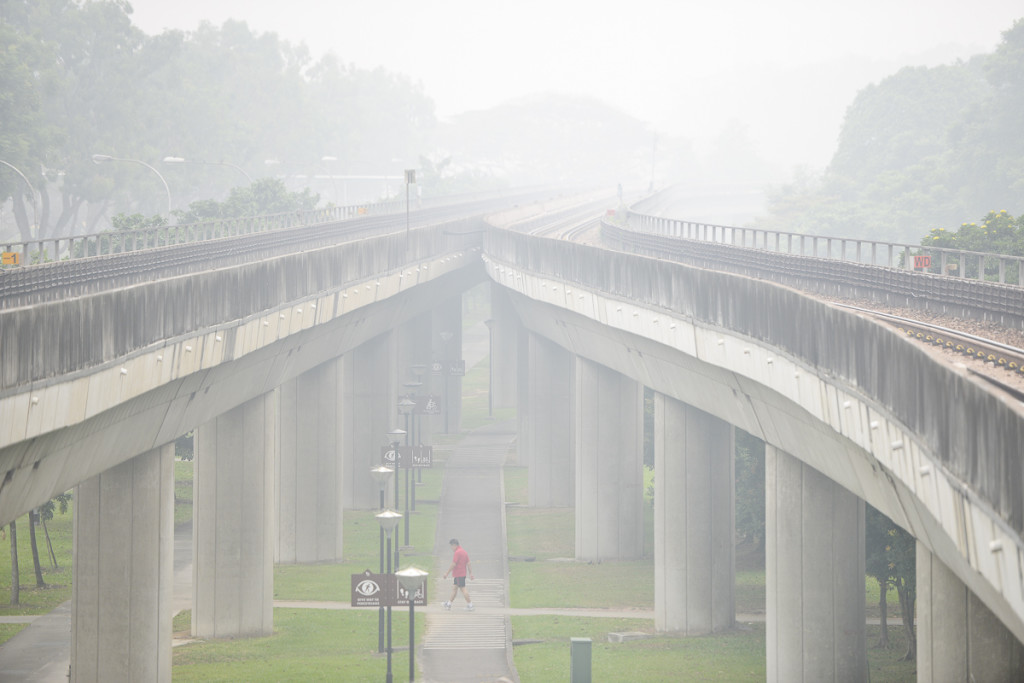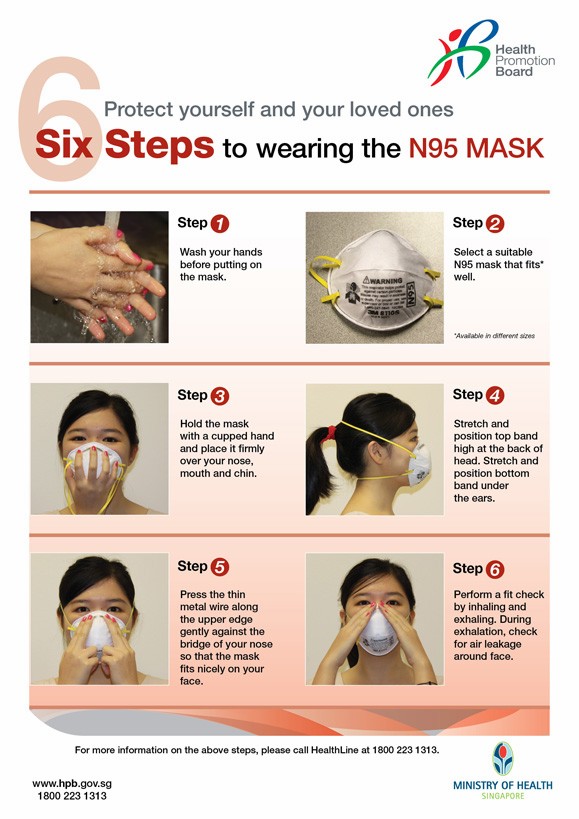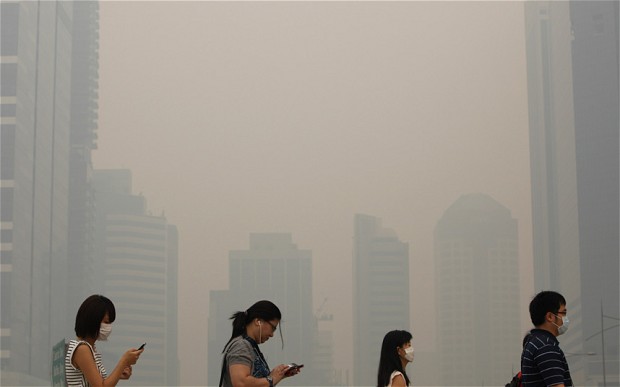During this hazy period, most athletes, including runners and cyclists, would probably train outside only when the PSI is 100 and below. Ironman triathlete Dr Joanna Lin, 51, is no different. Said Dr Lin, an oncologist, “I would only go outdoors to exercise if the PSI was 100 and below – that is, in the healthy/moderate range. That is my practice. As a triathlete, there are many other places to train, such as gyms or other indoor sporting venues that are very reasonable alternatives to going outdoors.

It is not safe to exercise when the PSI is high.
Photo by themiddleground.sg
She continued “The only discipline which might not be so easy to train for is swimming, as there are not many indoor swimming pools in Singapore, as opposed to other countries like the United Kingdom. Since the haze is mainly short-term, being flexible in training venues and schedules should not be a big problem to most triathletes, though.”
Not a good idea to exercise with an N95 mask on
Dr Lin does not recommend training outdoors with an N95 mask on, during hazy days though. She said, “In general, it is not a good idea to train outdoors with an N95 mask, regardless of whether it has one-way valves or not. The N95 mask, if used properly, significantly limits one’s air intake as the air has to pass through the mask before you breathe it in, so I think it would be very difficult for anyone to train properly using a well-fitted mask, as there is a risk that not enough oxygen can be taken in.”
For normal everyday usage though, an N95 mask is highly recommended especially when a healthy individual is required to be exposed to hazy air for several hours, when the haze has surpassed the hazardous range (PSI of greater than 300).
Surgical masks, according to Dr Lin, would not work. She explained, “Surgical masks are not useful at filtering air intake. The only masks useful during the haze are those with proper filtration of the air intake. These consist mainly of the N95 and EN149 masks and these should be properly fitted.”
An EN149 certified mask certification is the European Standard for masks and the N95 is the USA equivalent. Both versions can reduce a person’s exposure to airborne contaminants such as particles, gas or vapours.
Gauging that the mask fits you correctly
To gauge whether that the mask fits you properly, a good guide is that it should be of the right size for your face and also covers the nose and mouth comfortably without leakage. (See NEA infographic).

Photo Credit: Ministry of Health Singapore
It is important to make sure that the N95 mask has a snug fit, to ensure that most of the air that you breathe in, will be going through the filter – and not through the gaps between the mask and your face.
As the haze can contain harmful particles that are 2.5 microns or smaller in size, studies have shown that certified N95 masks provide the wearer with adequate protection against such particles as they have a 95 per cent chance of blocking out particles that are as small as even 0.1 to 0.3 microns, from entering your nose and potentially, into your lungs.
Dangers of breathing in harmful smog particles
Dr Lin also added that wearing such a mask is important, because of the dangers posed through breathing in particles such as those that can be found in the haze. She explained, “The haze can cause health problems in the short term and the long term. Short-term problems are usually related to irritation of the eyes, nose and throat in some individuals, and possible aggravation of lung and heart problems in those susceptible individuals, for example, exacerbation of asthma in asthmatic individuals.”

Breathing in smog particles can be dangerous – so wear your N95 mask outdoors during hazy days
Photo by The Telegraph.
Continued the doctor, “The long-term effects of the haze in a place like Singapore is not easy to define though, as we only experience the haze for short periods of the year and usually only once every few years. This year is an exception in that it has lasted longer and is more intense than previous years mainly because of the hot, dry weather this year, due to the El Nino effect. In long-term studies in other countries, the main long-term effects are in heart and lung health, that is, more risk of heart attacks and worsening lung diseases.”
The N95 mask is supposed to protect you from smog particles, but it may cause difficulties in breathing, tiredness or headaches, because it restricts breathing capacities, especially when you are exercising. So if you are not feeling comfortable or experience even the slightest bit of dizziness, it is very important to get yourself indoors and take off your N95 mask, so that you can get some cleaner air.


Leave a Comment